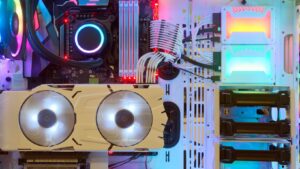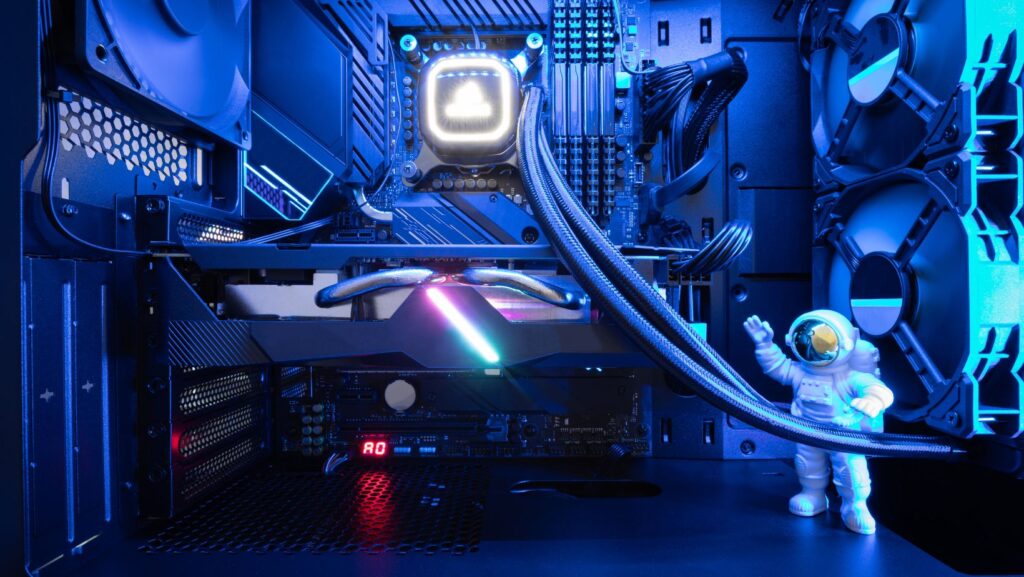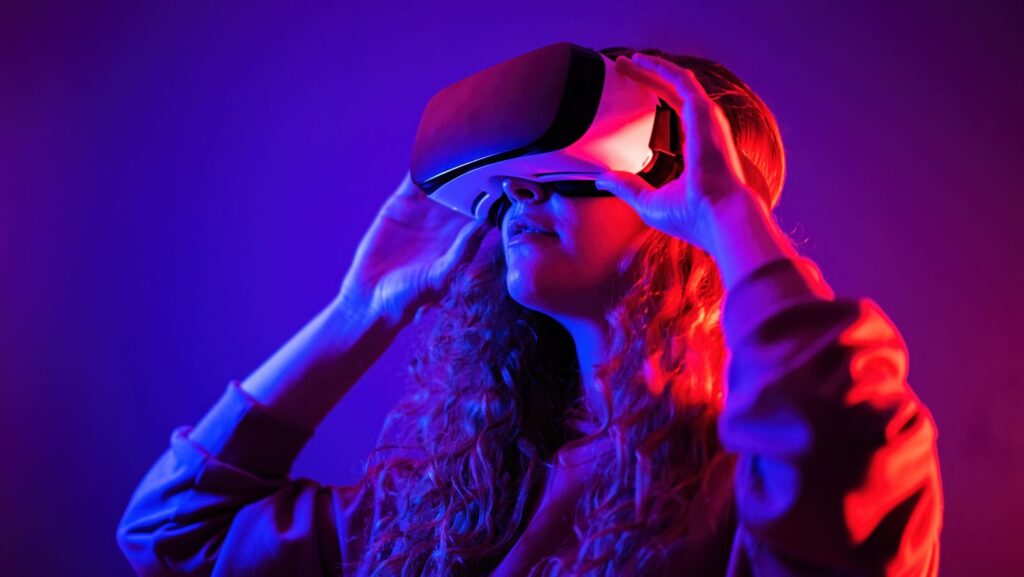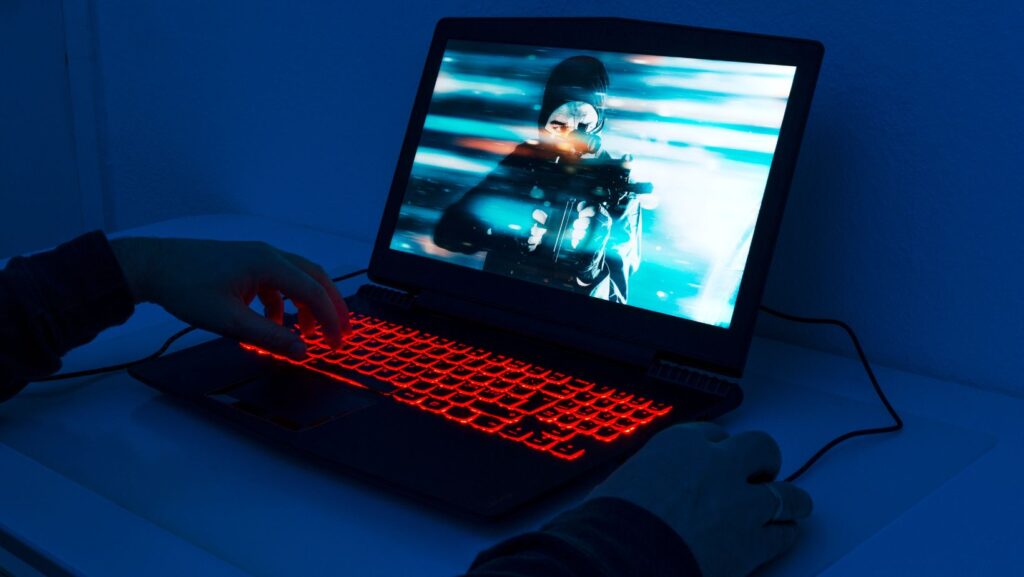 Virtual reality gaming has taken the world by storm, offering immersive experiences that transport players to entirely new realms. But to truly enjoy these high-octane adventures, a robust CPU is essential. The right processor ensures smooth gameplay, quick load times, and a seamless VR experience. Choosing a good CPU for VR gaming can be daunting with the plethora of options available. Understanding what makes a CPU stand out—whether it’s core count, clock speed, or compatibility—can make all the difference. This guide will help you navigate through the top contenders, ensuring your VR setup delivers peak performance.
Virtual reality gaming has taken the world by storm, offering immersive experiences that transport players to entirely new realms. But to truly enjoy these high-octane adventures, a robust CPU is essential. The right processor ensures smooth gameplay, quick load times, and a seamless VR experience. Choosing a good CPU for VR gaming can be daunting with the plethora of options available. Understanding what makes a CPU stand out—whether it’s core count, clock speed, or compatibility—can make all the difference. This guide will help you navigate through the top contenders, ensuring your VR setup delivers peak performance.
Best CPU For Vr Gaming
Importance of CPU Performance in VR
CPU performance is crucial for VR gaming. A high-performance CPU ensures efficient processing of complex graphics and physics, reducing latency and minimizing frame drops. Processors with multiple cores, such as those with 6, 8, or more cores, can handle higher loads, enhancing the realism and responsiveness of VR environments. High clock speeds contribute to faster data processing, ensuring that VR experiences remain smooth and immersive.
How CPUs Influence VR Experiences
 CPUs influence VR experiences by managing various tasks that directly affect gameplay. Key aspects include rendering, tracking, and managing input-output operations. Efficient rendering allows for high-resolution graphics, which is vital for realistic VR visuals. Accurate tracking ensures precise movement replication in the virtual environment. Managing input-output operations efficiently reduces lag, providing a seamless and enjoyable VR experience. CPUs such as Intel’s i7 or AMD’s Ryzen 7 series, known for their high performance and reliability, often top the list for VR gaming setups.
CPUs influence VR experiences by managing various tasks that directly affect gameplay. Key aspects include rendering, tracking, and managing input-output operations. Efficient rendering allows for high-resolution graphics, which is vital for realistic VR visuals. Accurate tracking ensures precise movement replication in the virtual environment. Managing input-output operations efficiently reduces lag, providing a seamless and enjoyable VR experience. CPUs such as Intel’s i7 or AMD’s Ryzen 7 series, known for their high performance and reliability, often top the list for VR gaming setups.
Top CPUs for VR Gaming in 2023
High-End CPUs
For high-end VR gaming, CPUs like Intel Core i9-13900K and AMD Ryzen 9 7950X offer unmatched performance. These CPUs have numerous cores (up to 24) and high base clock speeds (around 3.5 GHz), making them ideal for handling VR’s complex graphics and physics processing. Intel’s i9-13900K supports technologies like Hyper-Threading and Turbo Boost. Ryzen 9 7950X boasts features like simultaneous multi-threading (SMT) and advanced power management. They ensure minimal latency and smooth frame rates, enhancing immersion in VR environments.
Mid-Range CPUs
Mid-range options like Intel Core i7-12700K and AMD Ryzen 7 7700X are superb for a balance of cost and performance. These CPUs have 8-12 cores, with clock speeds around 3.6 GHz. Intel’s i7-12700K features an efficient thermal design, supporting technologies like Intel Turbo Boost Max 3.0. Ryzen 7 7700X offers extended frequency range (XFR) for automatic overclocking. Both handle VR applications adeptly, ensuring stable performance without breaking the bank.
Budget-Friendly CPUs
 Budget-friendly models such as Intel Core i5-12400F and AMD Ryzen 5 5600X deliver solid performance for VR gaming at a lower price point. These CPUs typically have 6 cores, with base clock speeds near 2.9 GHz. Intel’s Core i5-12400F provides impressive single-thread performance and energy efficiency. Ryzen 5 5600X includes AMD’s Precision Boost technology, which adjusts performance based on workload. They offer dependable VR experiences, suitable for gamers on a budget.
Budget-friendly models such as Intel Core i5-12400F and AMD Ryzen 5 5600X deliver solid performance for VR gaming at a lower price point. These CPUs typically have 6 cores, with base clock speeds near 2.9 GHz. Intel’s Core i5-12400F provides impressive single-thread performance and energy efficiency. Ryzen 5 5600X includes AMD’s Precision Boost technology, which adjusts performance based on workload. They offer dependable VR experiences, suitable for gamers on a budget.
Factors to Consider When Choosing a CPU for VR
Clock Speed and Core Count
Clock speed and core count are critical for VR gaming performance. CPUs with higher clock speeds process instructions faster, reducing latency in VR applications. For instance, Intel Core i9-13900K has a base clock speed of 3.0 GHz and boosts up to 5.2 GHz, optimizing VR gaming. Core count is equally important, as more cores enhance multitasking. AMD Ryzen 9 7950X, which features 16 cores, efficiently handles rendering, streaming, and gameplay simultaneously, ensuring seamless VR experiences.
Compatibility with Other Hardware
Compatibility with other hardware is essential for selecting a CPU for VR gaming. Ensure the CPU works with the motherboard, RAM, and GPU for an optimal VR setup. For example, Intel CPUs require Intel-compatible motherboards like Z790 for high-end models. Similarly, AMD Ryzen CPUs need AM4 or AM5 sockets based on the processor generation. Also, check RAM compatibility, with DDR4 or DDR5 support, depending on the CPU choice, to maximize gaming performance.



